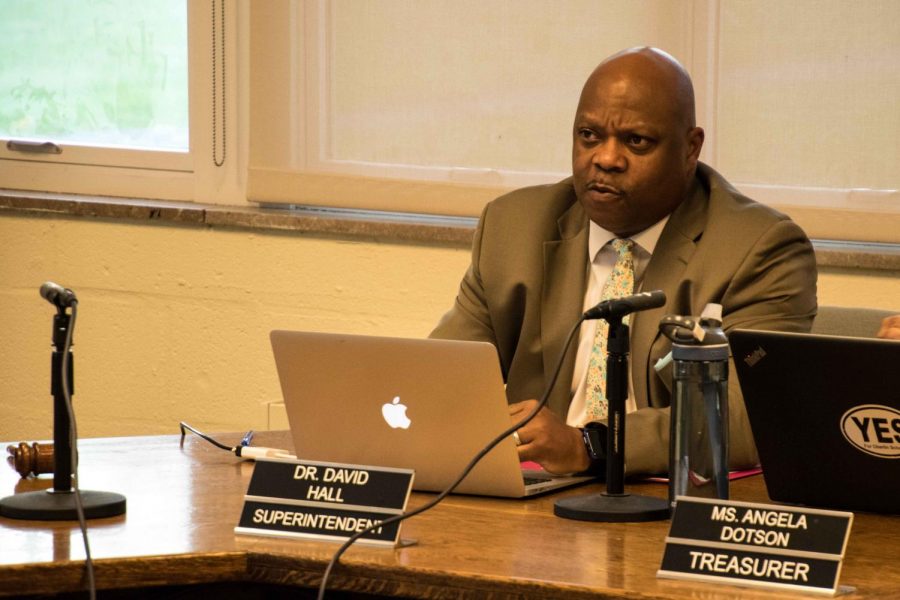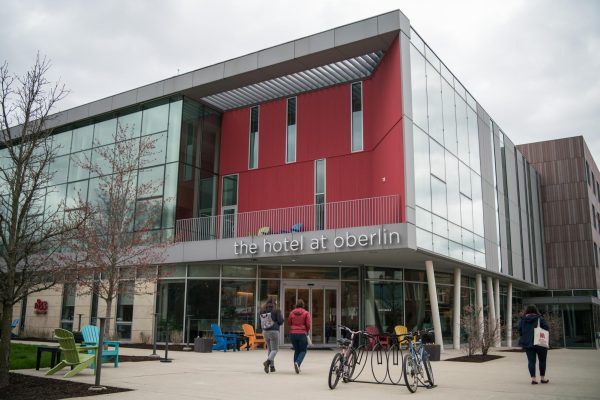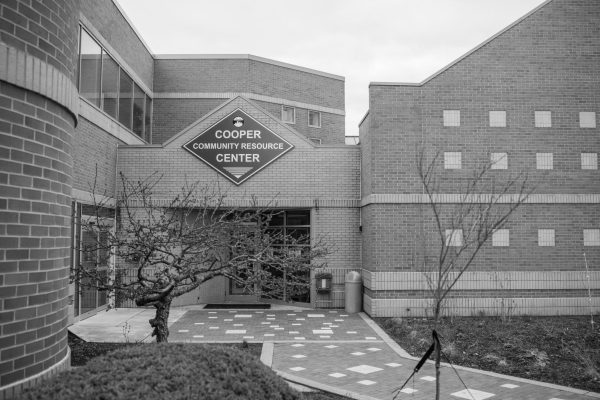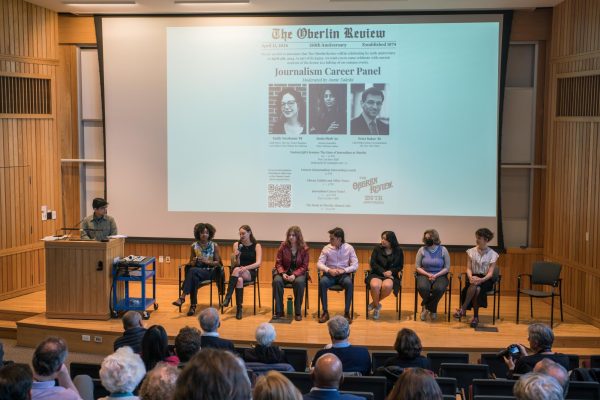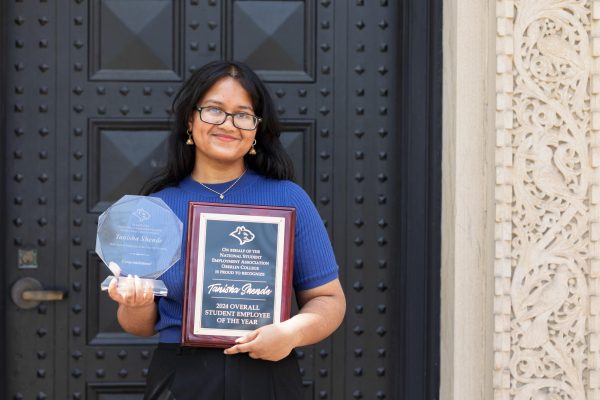Election Brings Opportunity for Needed Change in School District
Oberlin Superintendent David Hall at the most recent Board of Education meeting. There are currently six people running for three open positions on the Board of Education.
Since the Oberlin City School District continues to face uncertainty as enrollment numbers drop and the construction of a new school remains up in the air, the Nov. 7 election presents a much-needed opportunity for positive change.
The school board is made up of five elected representatives, and three seats will be up for grabs at the end of the year. Six candidates are vying for a position, including current representatives Albert Borroni and Anne Schaum, recently resigned Oberlin College staff member Isabella Moreno, and community members Sandra Redd, Jason Williams, and Kenneth Yancey. Steven Thompson’s name will still appear on the ballot, although he stepped down from the running in mid-October. Each seat carries a four-year term that will begin this January.
The five current members of the school board expect the electees to embody specific characteristics — namely, integrity and dedication — according to Superintendent David Hall. They will be expected to enforce policies that will improve the school district as well.
“It is not a job to take lightly,” Hall said. “[It’s important to] have an understanding of the board process and its dynamics.”
The board is responsible for developing and updating policies, approving the budget, hiring the superintendent and treasurer, and taking action based on recommendations made by those positions.
Borroni said that he and Schaum expect themselves and other candidates to be thoughtful when it comes to the goals of education, and to be able to balance the educational needs and other demands of the community should they be elected.
“We are looking for continuous improvement — giving the students the best opportunities to succeed — to move the district forward in a reasonable way that prepares students for the future economy,” Borroni added. “[We work] to teach them that it’s not just about how to make a living; it’s about how to make a life worth living.”
Continuing school board member Barry Richards said he hopes the board will establish effective curricula, develop a plan to deal with the growing financial burdens caused by the deterioration of the district’s buildings, and foster a sense of community.
“It’s important to have kids in the district and to have grown up in a public school environment,” Richards said. “It gives [candidates] a sense of the community, and the kids the whole package.”
Williams — who claims to be the only candidate to own a business — wants to form a partnership with the College that will help prepare students in the Oberlin School District for the demands of college and beyond. His hope is that students in the district will be able to utilize the College to knock out some college credits.
The International Baccalaureate was mentioned several times during the League of Women Voters of Ohio forum that took place Oct. 16. The IB is an international educational foundation that offers four educational programs. Schaum’s daughter, College student Miranda Schaum, graduated from the district with an IB diploma. At the forum, she asked why less than 10 percent of her graduating class graduated with the diploma.
There are many key issues that the board must work to improve, Schaum responded. That program is just one of them.
“A decision needs to be made about the facilities,” Schaum said. “We have fewer than 1,000 kids and are maintaining five aging buildings. The proposal the board received a few years ago indicated we could save $1 million per year if we built a single facility to house our programs.”
The proposal is for a $36 million building that will replace Prospect Elementary School, Eastwood Elementary School, and Langston Middle School.
Borroni supports reducing the number of schools from five to two and says that it will reduce costs in the long run, despite the millions it will cost to build.
Yancey, a retired electrician, views the construction of a new school differently. He said that having multiple schools adds to the benefits of a small town, since each school brings something unique to the community.
Borroni said he thinks the board has an opportunity to make significant positive change during the next term. He says the board spent a lot of time over the past two years interviewing candidates and finding the best fits for the superintendent and treasurer positions, and the board is next.
“Getting everyone into place was a balancing act, but now there is some stability to move forward and explore new programs,” Borroni said. “I am very excited to move forward and will be involved even if I am not [re-]elected.”
He said he hopes to see the future board members work with Lorain County Community College to offer high school students options to get some college credit hours out of the way. He also hopes the board will develop a plan to sustain the “no pay to play” program, which gives students access to musical instruments, art supplies, and athletic facilities free of charge.
Hall encourages voters to take the time to research all of the candidates before making a decision.
“It’s about the students,” he said. “It’s not about personal feelings or specific programs. At the end of the day, it’s about the kids.”
Schaum said the candidates were asked to complete several surveys for local newspapers and the League of Women Voters. Recordings of the annual Candidates Night — which took place Oct. 9 and allowed the Board of Education and City Council candidates to voice their opinions and answer questions — are available on Facebook on the Oberlin Candidates Night page.


